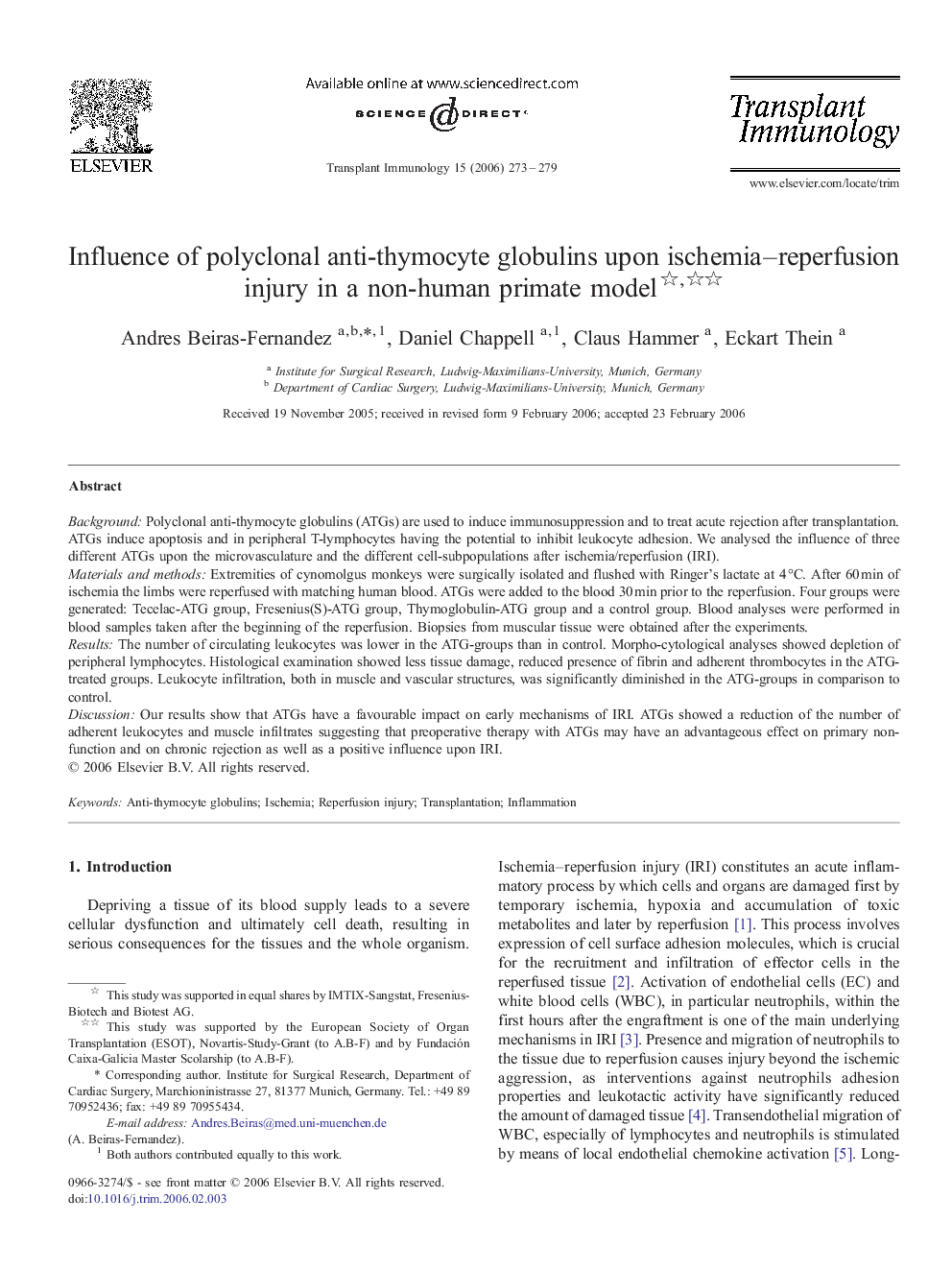| Article ID | Journal | Published Year | Pages | File Type |
|---|---|---|---|---|
| 3392715 | Transplant Immunology | 2006 | 7 Pages |
BackgroundPolyclonal anti-thymocyte globulins (ATGs) are used to induce immunosuppression and to treat acute rejection after transplantation. ATGs induce apoptosis and in peripheral T-lymphocytes having the potential to inhibit leukocyte adhesion. We analysed the influence of three different ATGs upon the microvasculature and the different cell-subpopulations after ischemia/reperfusion (IRI).Materials and methodsExtremities of cynomolgus monkeys were surgically isolated and flushed with Ringer's lactate at 4 °C. After 60 min of ischemia the limbs were reperfused with matching human blood. ATGs were added to the blood 30 min prior to the reperfusion. Four groups were generated: Tecelac-ATG group, Fresenius(S)-ATG group, Thymoglobulin-ATG group and a control group. Blood analyses were performed in blood samples taken after the beginning of the reperfusion. Biopsies from muscular tissue were obtained after the experiments.ResultsThe number of circulating leukocytes was lower in the ATG-groups than in control. Morpho-cytological analyses showed depletion of peripheral lymphocytes. Histological examination showed less tissue damage, reduced presence of fibrin and adherent thrombocytes in the ATG-treated groups. Leukocyte infiltration, both in muscle and vascular structures, was significantly diminished in the ATG-groups in comparison to control.DiscussionOur results show that ATGs have a favourable impact on early mechanisms of IRI. ATGs showed a reduction of the number of adherent leukocytes and muscle infiltrates suggesting that preoperative therapy with ATGs may have an advantageous effect on primary non-function and on chronic rejection as well as a positive influence upon IRI.
